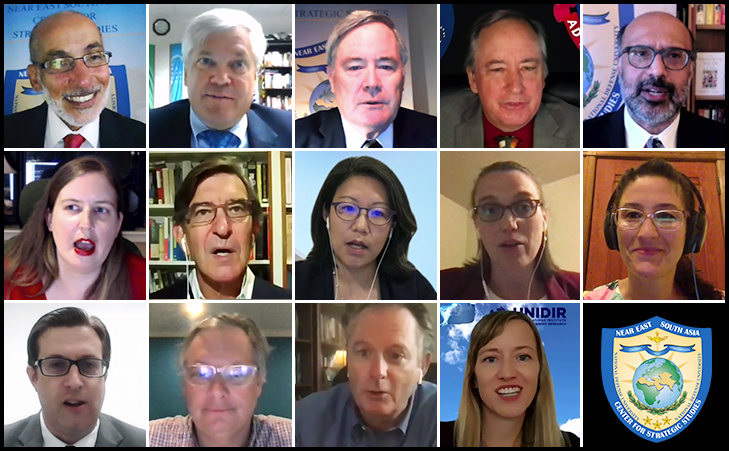Senior Executive Seminar “Nuclear Weapons Proliferation: Strategic Implications for the NESA Region”
September 25, 2021 2021-09-25 14:58Senior Executive Seminar “Nuclear Weapons Proliferation: Strategic Implications for the NESA Region”
Senior Executive Seminar “Nuclear Weapons Proliferation: Strategic Implications for the NESA Region”
From 20 September to 24 September, the NESA Center conducted a weeklong Senior Executive Seminar on the proliferation of Weapons of Mass Destruction (WMD) and the strategic implications for the NESA region. Dr. Gawdat Bahgat, Dr. Hassan Abbas, and Dr. Richard Russell moderated discussions with senior WMD experts from leading think tanks and NGOs, current and former U.S. government officials, and UN officers to explore the implications of proliferation developments on regional stability and security. The seminar consisted of ten sessions dedicated to topics including, but not limited to, missile proliferation, biological weapons, chemical weapons, and the intersection of gender issues and WMD.
With the collapse of the INF Treaty and other strategic arms control agreements like the JCPOA, the global nonproliferation regime is under an unprecedented amount of strain. Recent developments will spur renewed interest in the proliferation of missile technology and WMDs. The COVID-19 pandemic revealed society’s vulnerability to biological weapons. Assad’s use of chemical weapons against his own people and Russia and North Korea’s assassination of dissidents using chemical weapons pose a serious challenge to the Chemical Weapons Convention. In both cases, the lack of accountability and international condemnation eroded the norm against the use of chemical weapons. Throughout the NESA Region, missile proliferation is endemic as countries increasingly recognize the value of missile technology in warfare. Renewed multilateral and bilateral efforts will be key to preserving peace and global security in this increasingly strenuous, multifaceted threat environment.






